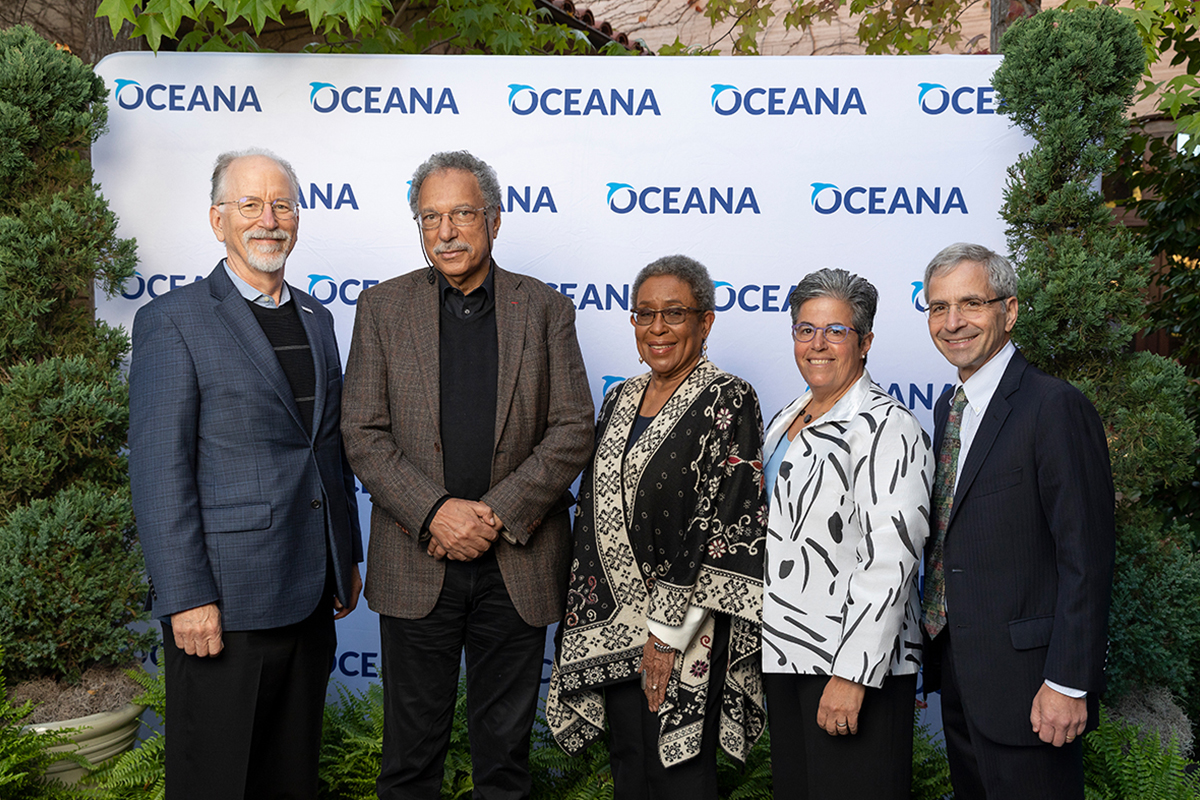
(left to right): Oceana CEO Andrew Sharpless, Oceana Board Member Dr. Daniel Pauly, X, Oceana Chief Policy Officer Jacqueline Savitz, and Oceana President Jim Simon attend the Oceana’s 2021 SeaChange Summer Party in Laguna Beach, CA. Photo by Kevin Warn
Jackie Savitz is a marine biologist and the Chief Policy Officer for Oceana, an ocean conservation organization focused on influencing policy decisions. Here, she speaks to LUX about how and why governments need to be pressured to introduce fundamental policy changes for the good of all
LUX: You have an extensive background in environmental science. When did you decide to dedicate your career to ocean conservation?
Jaqueline Savitz: Ever since I was a teenager, I knew that I wanted to protect the oceans. After I was exposed to a marine science program at Wallops Island, VA, there was no turning back. I grew up spending summers at my grandparents’ on the New Jersey coast and fell in love with the ocean at an early age, so when it was clear that ocean conservation could be a profession, I was sold. It was obvious to me – even as a kid – that human impact on the environment needed to be managed, and that the implications of not doing so would undermine the integrity of the environment, including our oceans.
Follow LUX on Instagram: luxthemagazine
LUX: Can you tell us more about Oceana’s goals and values, and your role within the organisation?
JS: At Oceana, we recognize that the oceans can provide food for a billion people or more, on a regular basis, if they are properly managed. Making fisheries sustainable is key, but it’s not the only thing we need to do to realise that goal. We also have to prevent pollution and climate change, which both threaten biodiversity and the health of marine ecosystems. For example, plastic pollution does not belong in the stomachs and digestive tracts of sea turtles, sea birds, fish, marine mammals, or even humans. The fact that this is already the case indicates a threat to the survival of sea turtles as they are threatened or endangered species, and it could also compromise populations that are not yet endangered. We also advocate for transparency which, when built into our policies, or made real through technology, can allow our societies to better manage resources.
As Chief Policy Officer, I oversee Oceana’s campaigns in the United States as well as in Belize, Mexico, and the European Union. My goal is to make sure we have impactful and successful campaigns that rebuild fisheries, reduce illegal fishing, and protect the marine ecosystem from oil and gas development and plastic pollution.
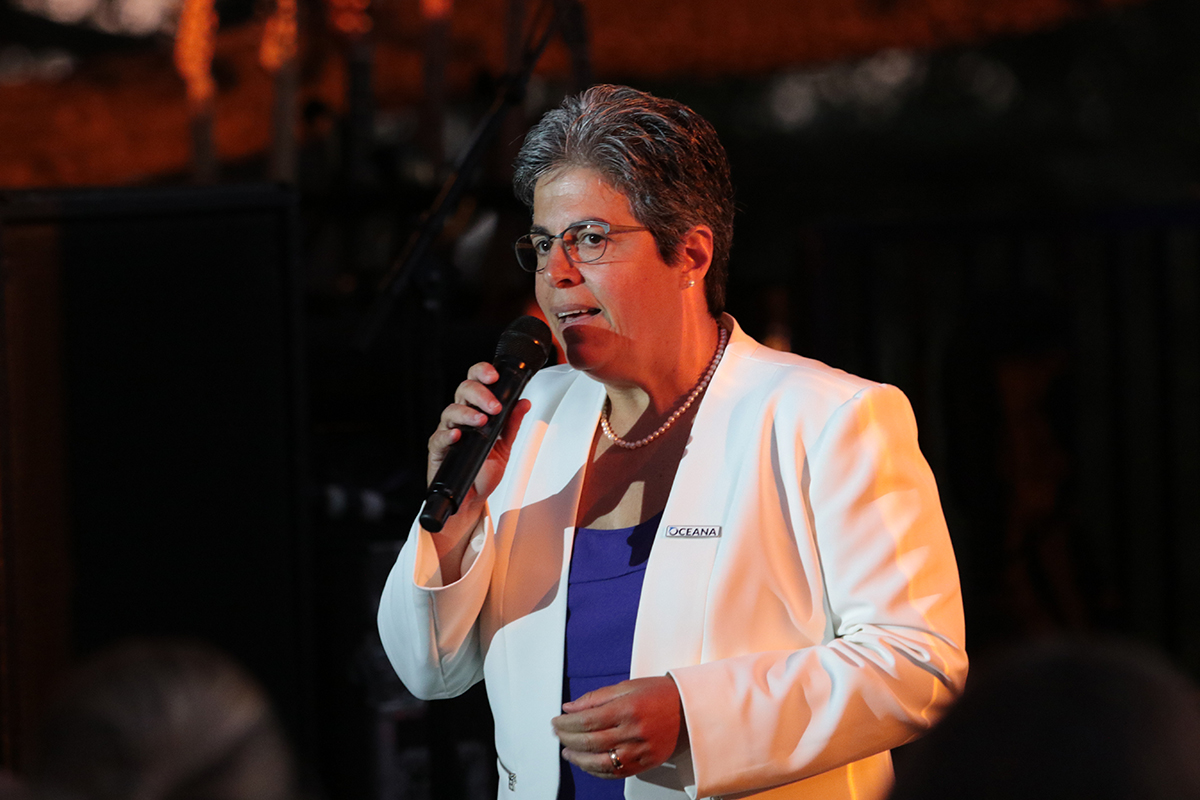
Jackie Savitz speaks as Oceana Presents: Sting Under the Stars in Los Angeles, CA on Tuesday, July 19, 2016.
Photo by Alex J. Berliner/ABImages
LUX: Working on this global scale, can you tell us about the challenges you’ve encountered while navigating different political landscapes when working towards policy change?
JS: Oceana works in countries that have a democratic process in place, which is key to creating people-driven change. However, even in a democracy, there are impediments to winning policies to protect the oceans. Strong corporate lobbies like the petroleum, plastics, and fishing industries have a lot of muscle to push back against policies that benefit all of us, such as those to stop overfishing and ensure we have fish in the future, or policies to transition to clean energy and reduce the impacts of climate change. But we have found that we can win when politicians hear science-based messages from diverse voices, all saying that a new direction is needed.
LUX: How can organisations like Oceana effectively communicate complex environmental issues to the public to encourage action and engagement?
JS: Communicating science in a way that makes sense to the public can be difficult, but it is essential and not impossible. We recognise that our audience is much larger than the scientific community, and it includes journalists, lawmakers, and citizens of every profession. We speak to our audience, and that may mean we write scientifically for scientists or legalistically for legislators, and we speak to citizens in plain language that allows them to interpret the message and take action. We have found that when we engage the public, we can influence legislators on all sides and win campaigns that may look impossible at the outset.
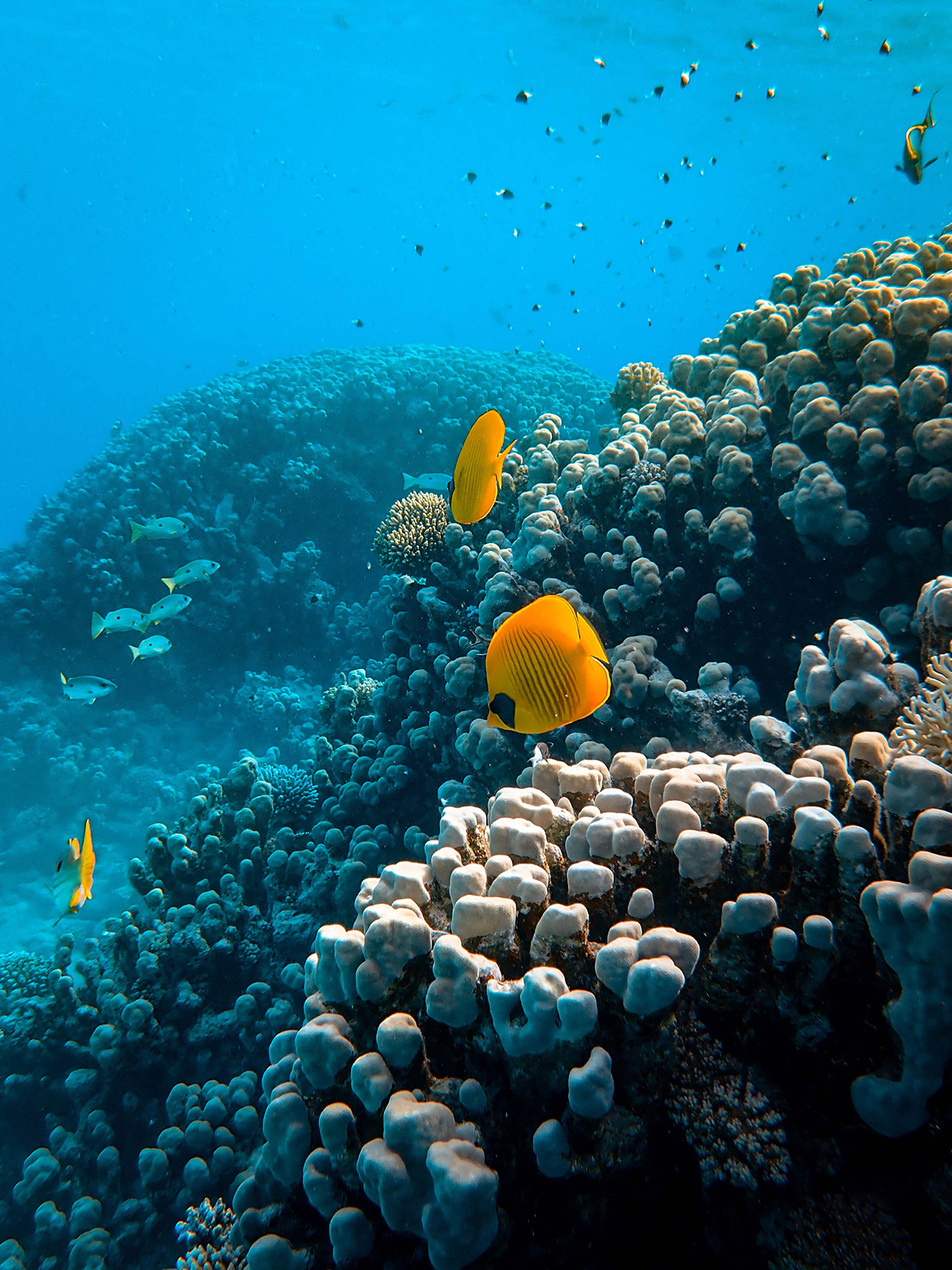
Photo by Francesco Ungaro via Unsplash
LUX: How is the use of technology transforming the field of marine conservation?
JS: There are so many technological tools that are now being applied to marine conservation that we should anticipate great leaps forward as a result. Satellites bring us increasingly complex data on ocean conditions and activities, providing the locations of cargo ships, fishing vessels, and more, and introducing a world of new possibilities. The application of machine learning and the ability to work with massive amounts of data is incredibly empowering. Oceana, along with our partners at Skytruth and Google, used those tools to build a web platform that makes the actions of fishing vessels visible in near-real time, and we make it available to the public online for free. It’s called Global Fishing Watch, and it has continued to increase capabilities since its formal launch in 2016. This is creating transparency on fishing globally and allowing Oceana to continue to evaluate fishing activity so we can identify and enforce against illegal fishing.
LUX: Given your background in academia, how do you think we should be bridging the gap between scientific knowledge and policy-making?
JS: Science is fundamental, but it doesn’t exist in a vacuum. Politics is real, and it has an impact everywhere. So much of policy is not based purely on science. It is influenced more and more by powerful lobby groups and the only way I know of to overcome that is to organise voters, real people, who are affected by policies, and make sure their elected officials are hearing from them. Voters are the main source of accountability and when there is accountability, we can create an environment where science and public interests prevail.
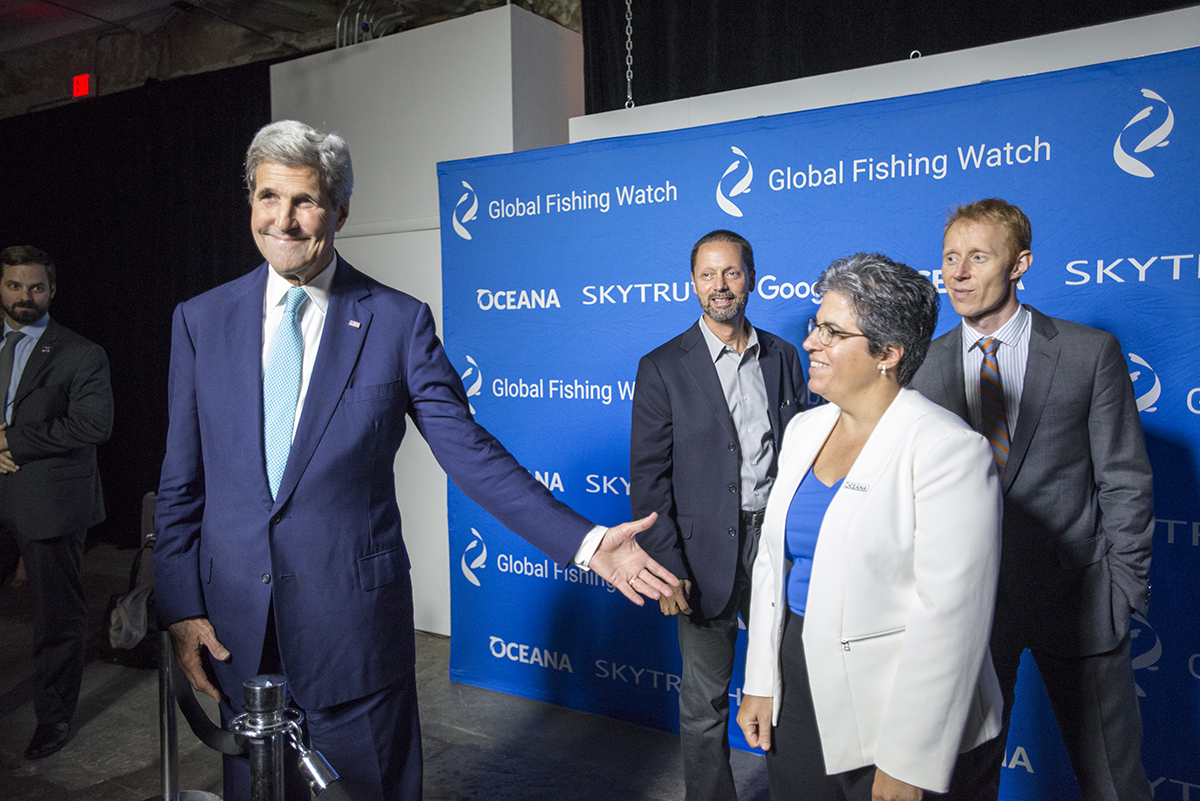
Former Secretary of State John Kerry and Jacqueline Savitz at the launch of Global Fishing Watch reception in 2016.
Photo by Franz Mahr
LUX: Oceana has had numerous key victories in the realm of ocean conservation and policy making. Which of these victories are you most proud of?
JS: I’m incredibly proud of our teams that have stopped bottom trawling in 90% of the U.S. West Coast states of California, Oregon, and Washington. We have fought bottom trawling in Europe, Belize, and Brazil, as well. And our teams in the U.S., Belize, and Europe have taken many types of gillnets (some of them a mile long and many stories deep) out of the ocean. So much habitat has been protected, and so many animals have survived because of those campaigns. We hope to replicate that elsewhere and continue to increase protections against bycatch, overfishing, and habitat destruction.
LUX: You’ve spoken before about the link between conserving the oceans and feeding the world’s hungry. What key changes need to be made in the seafood industry to address the problems we are facing today?
JS: Governments need to set science-based limits to prevent overfishing, prevent bycatch of species that are not targeted including other fish, as well as marine mammals, sea turtles, sharks, and more, and we need to protect marine habitat that fish and other sea life depend on for activities like feeding, breeding, and shelter from predators.
Read more: Jean-Baptiste Jouffray on the future of the world’s oceans
LUX: What do you hope is the next big policy win on the horizon for Oceana?
JS: On offshore drilling, President Biden is preparing to issue the government’s next five-year plan for offshore oil and gas leasing. Normally, there would be several new lease sales to petroleum companies in this plan, which could then pursue permits to drill for oil and gas in U.S. waters. What’s different this year is that President Biden vowed to offer no new leases for oil and gas drilling, and Oceana has pressed for a plan that does not include, and therefore would not allow, new leases to be sold.
The industry currently holds more than a thousand leases that it has not even used, so no new leasing doesn’t mean there would be no more drilling. There is enough area leased to support our fossil fuel needs into the next decade, and demand is expected to decline. So, standing by the pledge for no new leasing would be an important and clear signal that the U.S. takes seriously the need to shift away from fossil fuels and toward clean energy, which is the only way we can reduce the impacts of climate change.
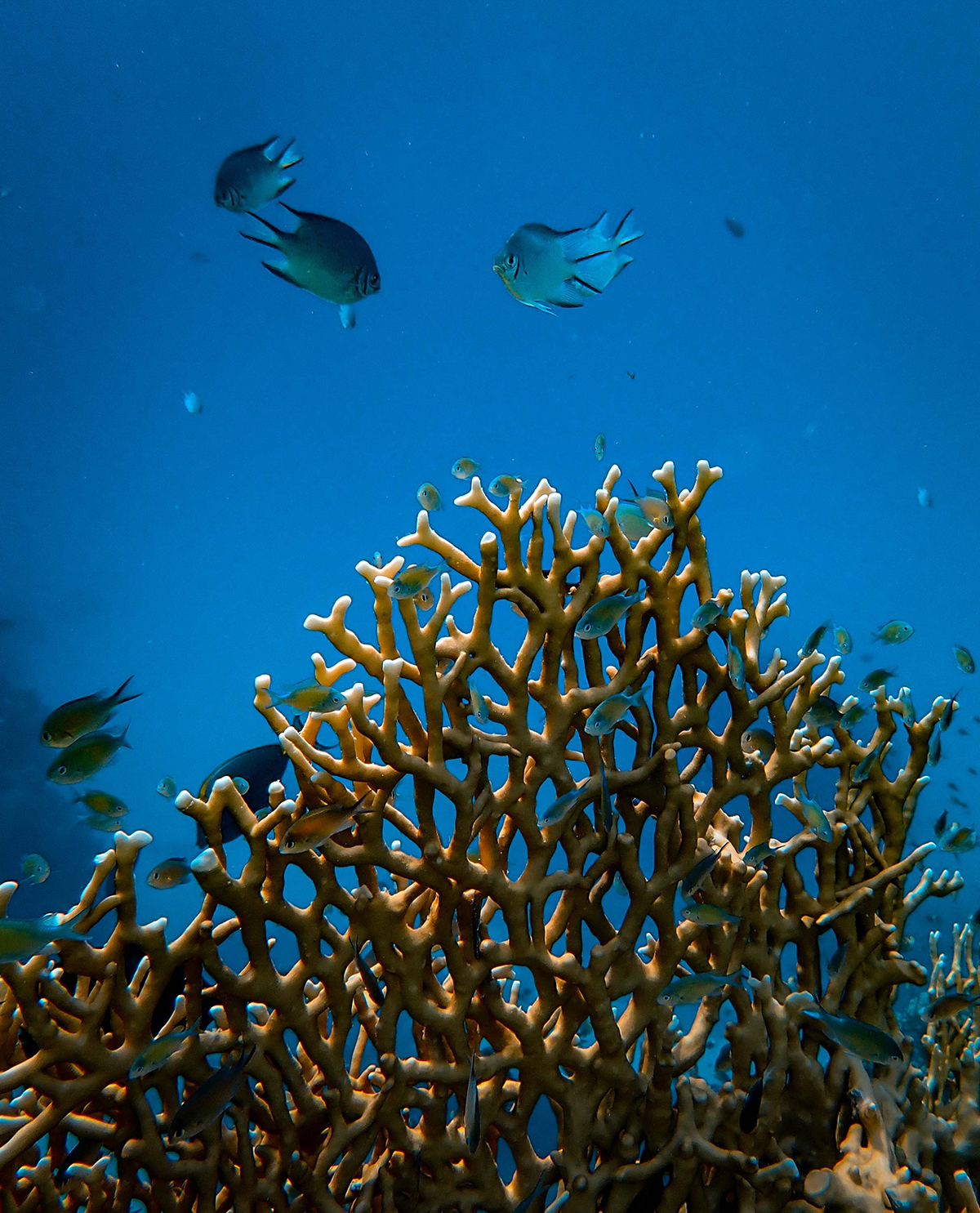
Photo by Francesco Ungaro via Unsplash
LUX: What do you believe our oceans will look like in 10 years time?
JS: There is a big push right now to protect marine habitat through the development of marine protected areas. The goal is to protect 30% of ocean habitat by 2030. So, in 10 years we could see a much larger amount of our oceans being protected. If so, it will have a major impact on marine biodiversity. Marine protected areas, when well-managed, can not only provide a refuge for marine life, but also seed the surrounding waters, since fish and other animals don’t adhere to boundaries. The benefits of this movement toward protection will be felt beyond the boundaries of the protected areas, and in much more than 30% of the oceans. There is a caution here, because, without true protection, such as bans on bottom trawling and other non-selective gear, such protections could provide a false sense of success, without delivering the promise of abundant fisheries and healthy marine ecosystems.
Our oceans are facing diverse threats from climate change, overfishing, plastic pollution, and more. We know the solutions; it’s not rocket science. But to protect the oceans, we need public engagement to hold decision-makers accountable for making the right policy choices that ensure we have abundant fisheries continuing into the future, with healthy ecosystems free from pollution to support those fish and other important marine animals too.








